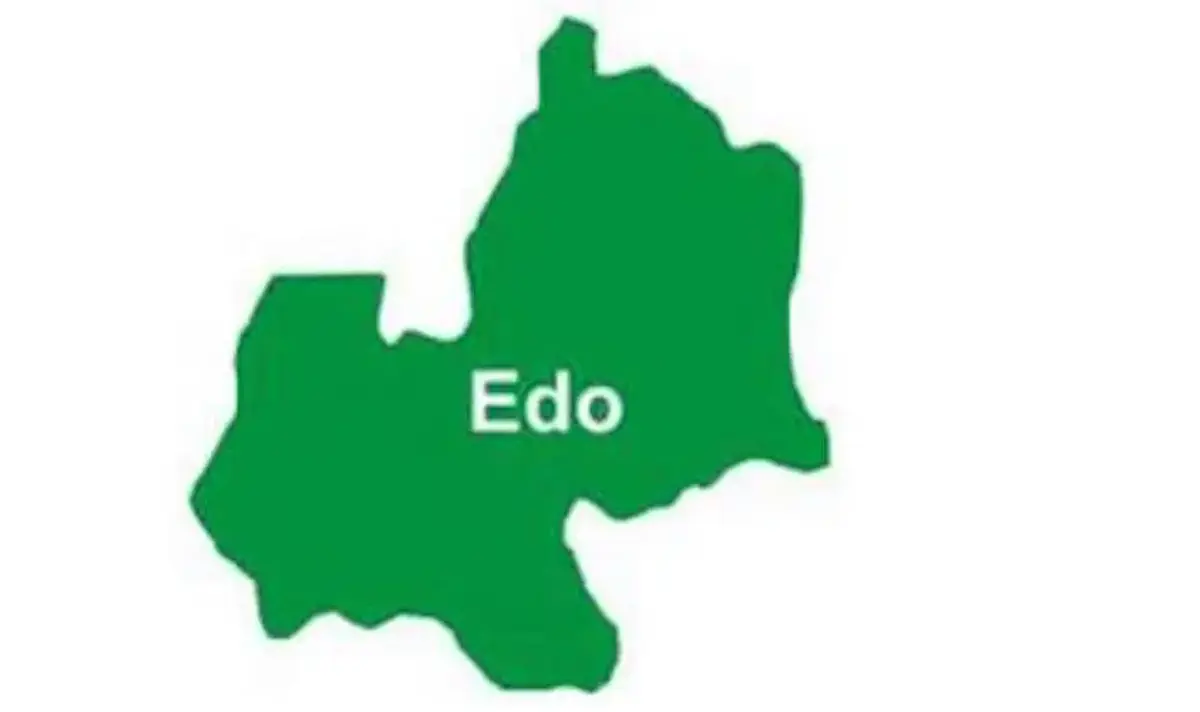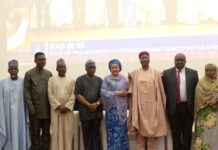A town with well-established features of ethnic plurality, Okene my place of birth in the north central state of Kogi was like a mini Nigeria. Populated by Nigerians of various ethno-geographic backgrounds, Okene town will emerge as a foremost centre of commerce, trade and local industry among contemporary communities. Whereas, the Igbo community, which dates back sometime around the end of the First World War, will dominate Okene’s auto spare parts, electronics, supermarkets and confectionary markets, the food and agricultural produce market was like a birth right of the four generations Hausa community, while the early Yoruba community consisted of mostly colonial administrators, educationists and church missionaries that were responsible for the education of our first generation political elite.
The innate ingenuity of the hard working Fulani cattle breeding community guaranteed a surplus supply of beef and a variety of dairy products for both residents and external patrons of Okene’s bourgeoning cattle market. The establishment of a Steel plant in Ajaokuta by the Federal Government of Nigeria in 1978 will further transform Okene from just a centre of ethnic plurality into a truly diverse town with a sizeable expatriate community of iron and steel technologists.
Growing up in my beloved Okene home town, I was quite unconscious of my ethnicity, let alone my clan because an atmosphere of unity, peace and prosperity permeated the entire community. My parents in the privacy of our homes spoke fondly about industrious nature of our Igbo, Hausa and Yoruba neighbours and made no derogatory remark about us being indigenes and they settlers. There was an organic assimilation and integration of everyone irrespective of ethnicity to such an extent that the native Ebira language was mastered and freely spoken by all without reservation. It is always a delight to see my Igbo, Yoruba and Ebira friends communicating with members of their own family in flawless Ebira language. This integration and assimilation was cemented further by unrestrained inter-ethnic marriages between desiring member of various communities.
My young mind was shaped to see every member of my diverse community as first a fellow human being who should be related with in terms of shared individual interests; hence the frequent instances of inter-ethnic marriages and fruitful business partnership between interested parties. In the famous Okene Bariki market, each cultural economic group has a clearly designated a space to freely engage in commerce and industry. As far as I was concerned, Okene, a cosmopolitan town of varied ethnic convergence was my identity and my native Ebira was just a language spoken by all. I considered and still consider myself an Okene man, rather than an Ebira man the same way I consider my childhood friends Celestine Okeke, Tayibat Saleh and Sunday Akeju, to whom the town is a permanent home, not as Igbo, Hausa or Yoruba but as Okene people.
Looking back with nostalgia, Okene like many other places eminently qualifies as one of Nigeria’s major fledging centres of excellent diversity management, which bred a whole generation of individuals whose identities were their broad geographic reality [Warri, Jos, Lagos] and not their narrow ethnic origins [ijaw, Urhobo, Itsekiri, Birom, Ngas, Tarok, Yoruba, Fulani etc.].
In what can best be described as the golden age of my beloved home town of Okene, was made possible by a two major factors; leadership success at the community level under a prevailing atmosphere of national unity within the larger Nigerian state. Under a relatively united Nigeria, the native authority under the leadership of successive traditional rulers presided over the affairs of my birth place with justice, fairness and equity to all irrespective of ethnic background. Under this system the emerging threats of farmers/ herders clashes in the early stages were prevented, contained or punished accordingly through a traditional mechanism of impartial execution of law and order by constituted native authorities under an integrated framework of social justice.
This impartial implementation of traditional law and order by the native authorities mitigated incidences of resort to self-help as all parties are confident of a just and fair adjudication. Part of the confidence building measure was the inclusion of the Ardo [leader] of the settled Fulani community in the council of palace chiefs by the Late Ohinoyi Mohammed Sani Omolori of Ebira. To the eternal credit of a traditional leadership success, my home town of Okene has never experienced the ugly incidence of inter-ethnic violent conflict. The many incidences of conflict witnessed in Okene were largely the evaporation of political steam that are restricted within members of the host community alone.
Like every other cultural economic group in Okene, Ethnic Fulani cattle breeders, were given land by the host community to adopt a more productive sedentary life style. The Fulani cattle breeder community in Okene settled down to a life peace and prosperity in unity with other groups within the larger community. To enhance the productivity of the Fulani cattle breeding community, the native authorities facilitated the establishment of an abattoir for ethnic Hausa skilled butchers as well as cattle market in a place thence known as Zango. These facilities will transform Okene town into a hub of cattle and allied businesses. The booming trade in cattle and allied businesses will eventually become the main stay of many individual economies of fully involved natives in the value chain.
My experience is not entirely uniquely Okene. From Onitsha to Benin and from Maiduguri to Calabar, Nigerians have demonstrated the willingness as well as capabilities to cohabit peacefully in the unity of shared prosperity, irrespective of varied ethno-geographic origins under the right conditions of an egalitarianism, freedom, justice and equity. Unfortunately, Nigeria is descending into a Hobbesian state of anarchy, where life is nasty, brutish and short because of the failure of leadership at all levels of government. At the root of Nigeria’s economic, security and corruption challenges is the unresolved question of national identity. A lack of visionary leadership of the Nigerian state, which is deliberate in evolving Nigeria from a country of micro-ethnic nationalities to a truly united nation, wherein residency will supersede state of origin with the constituent peoples transformed from indigenes to citizens, has greatly reversed the modest gains of the past towards national unity. A situation where certain groups of citizens are regarded as migrants with limited socio-economic and political rights in their own country on the basis of the obnoxious indigene/settler dichotomy is the recipe for the disaster Nigeria has become.
The failure of the leadership of the Nigerian state to entrench a mechanism of seamless integration and assimilation of Nigerians in their places of residence irrespective of their ethno-geographic origin with full political and economic rights accorded them as citizens has sustained the indigene/settler dichotomy across the country.
In a country of indigenes such as Nigeria, loyalty to place of origin comes before loyalty to the state. Similarly, fidelity to native authority supersedes obedience of constituted authorities with consequences of supplanting of law and order by culture and tradition. This situation also negatively affects the functionality of Nigeria’s constitutional democracy leaving its many promises of good governance unfulfilled. The political culture of a country of indigenes is primarily driven by primordial sentiments of ethnicity, geography and religion with the unfortunate result of throwing up a leadership class of individuals with deep seated provincial proclivities that considers political power as a tool to covet government for the benefit of their sections of the country to the exclusion of others.
The heightened exclusionist provincial proclivity of Nigeria’s ruling elite has deepened the existing ethno-geographic fault lines resulting into mutual mistrust, suspicion and acrimony among the constituent micro ethnic nationalities. This unprecedented level of division in Nigeria has triggered ethno-geographic nationalism, with each group jealously guarding whatever ancestral assets it has, ranging from land, solid and oil minerals while others are holding on to political power as a means to control revenue from the afore mentioned resources for its sectional benefit. The steep decline of Nigeria into a country of indigenes without citizens has resulted into a situation where the Nigerian nation is given way to Arewa, Ohanaeze and Odua nations.



